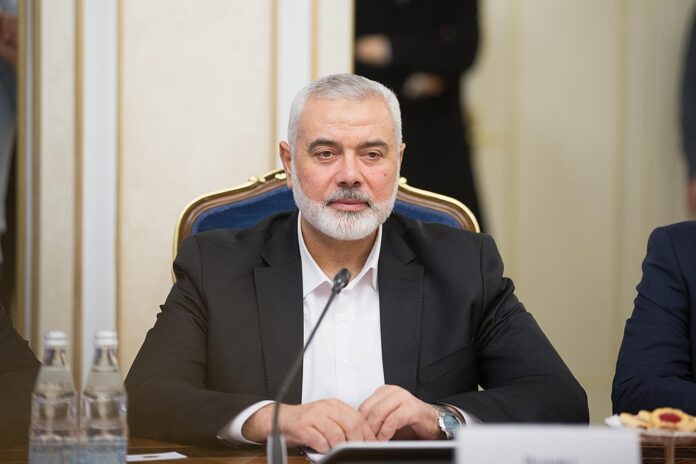Senior officials from both Palestinian groups to discuss unity amid ongoing conflict
In a renewed effort toward reconciliation, senior officials from Hamas and Fatah will meet in Beijing this month. The talks aim to bridge the longstanding divide between the two Palestinian factions, which have been at odds since 2007. Leading the Hamas delegation is Ismail Haniyeh, the group’s political chief based in Qatar, while Fatah will be represented by its deputy head, Mahmud Alul.
The announcement comes as both groups face increasing pressure to unite amid escalating violence in the region. Hamas has not yet commented on the upcoming meeting, but sources indicate that discussions will focus on ending the rift that has plagued Palestinian politics for years.
Embed from Getty ImagesHamas and Fatah’s rivalry began after Hamas expelled Fatah from the Gaza Strip following a violent conflict after the 2006 elections. Since then, Hamas has governed Gaza while Fatah leads the Palestinian Authority in the West Bank. The ongoing war with Israel, which intensified after the October 7, 2023 attacks, has further complicated the political landscape.
The reconciliation talks occur amid broader negotiations involving Israel and Hamas regarding a potential deal to release Israeli hostages in exchange for a ceasefire and the release of Palestinian prisoners. Recent reports suggest that both parties have tentatively agreed to transfer control of Gaza to a new Palestinian force during the second phase of a proposed three-phase deal.
Israeli Prime Minister Benjamin Netanyahu has consistently rejected the idea of involving the Palestinian Authority in a post-Hamas Gaza, stating he would not want to “replace Hamastan with Fatahstan.” However, sources indicate he has shown signs of reconsidering this stance privately.
Despite several failed attempts at reconciliation in the past, the urgency for unity has grown significantly since the recent outbreak of violence, particularly in the West Bank. Polls indicate a significant support disparity between the two groups: in the West Bank, 41% favor Hamas compared to only 17% for Fatah. In Gaza, support stands at 38% for Hamas and 24% for Fatah.
China previously hosted meetings between the two factions in April, although a scheduled meeting in June was postponed. The Beijing talks are set for July 20 and 21, with Fatah’s central committee deputy secretary general, Sabri Saidam, confirming the schedule. There may also be preliminary meetings before the official agenda begins.
The overarching goal of the talks is to end the division between the factions, committing to past agreements and establishing a framework for cooperation moving forward. China has positioned itself as a more neutral mediator in the Israel-Palestine conflict compared to the United States, emphasizing its role in facilitating dialogue.
Analysis
Political Perspective: The upcoming talks reflect a significant shift in Palestinian politics, highlighting the need for unity amid ongoing conflict. For both Hamas and Fatah, reconciliation could bolster their legitimacy and influence, especially as they negotiate terms with Israel regarding hostages and governance in Gaza. The meeting in Beijing represents a critical moment that could redefine the political landscape for the Palestinians.
Social Perspective: The divide between Hamas and Fatah has significant social implications for the Palestinian people. Unity could lead to a more cohesive approach to governance and representation, potentially improving the lives of ordinary Palestinians. The reconciliation process also sends a message about the importance of collective action in the face of external threats.
Racial Perspective: The ongoing conflict often intertwines with ethnic and national identities. The unity talks between Hamas and Fatah could serve to unify various Palestinian factions and communities, reinforcing a collective identity that transcends individual group loyalties.
Gender Perspective: The reconciliation talks must consider gender representation within both factions. Ensuring women’s voices are included in the discussions and subsequent agreements is vital for fostering an inclusive political environment. Women’s empowerment within the Palestinian movement could lead to more equitable governance.
Economic Perspective: Economic stability is crucial for any potential unity. The ongoing conflict has devastated the Palestinian economy, particularly in Gaza. A united front could facilitate better economic policies and cooperation, attracting international support and investment to rebuild and develop the region.
